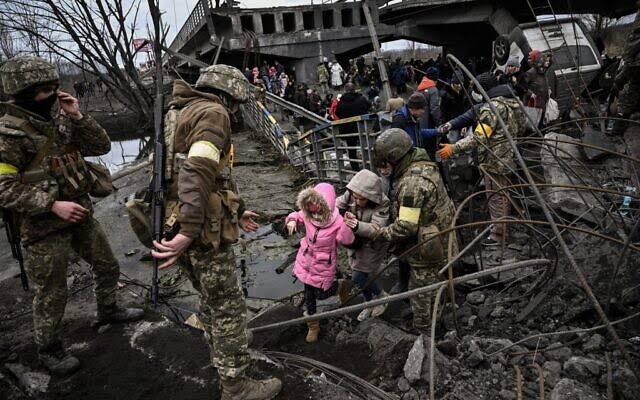NAIROBI, Kenya, Oct, 31 -Leaders across the world need to adopt a peaceful resolution and offer out-of-the-ordinary buttresses and strategies to shut off the intrusion of Ukraine by Russia.
Despite facing stringent sanctions from the 27-member European Union for the invasion, the warfare is magnifying. Sexual violence risks be it conflict-related, intimate partner, or trafficking for sexual exploitation among children and women surge in times of war and natural disaster emergencies.
The conflict in Ukraine which began in February this year is no exception to the traditional gendered structure of a battle. It has triggered off widespread sexual violence against women and children by Russian troops and other violations of UN Security Council rules on young people in wartime.
Violations listed in the 1999 council resolution include the targeting of children in conflict as well as recruiting and using children as soldiers. The war is worsening the child –rights- crisis.
Hundreds of schools have been attacked and many innocent children killed. Millions of forced deportations from Ukraine to Russia have been reported, the majority of the victims being youthful mothers and children.
In April, UN Women released data showing that about 90 per cent of the 10 million people who had been displaced by the Ukraine war were women and girls. Women and children are paying an unconscionably high price. The impact of this war to the youthful generation is agonizing. We need an end to this, lest we risk losing generations.
At least 15 of 89 UNICEF-supported schools in east Ukraine have been heavily destroyed in the fighting. The use of buildings and educational facilities as bases by the Ukraine’s military continues to jeopardize the lives of children, depriving them of their right to education.
The United Nation Population Fund (UNFPA) in May, reported that an estimated 265,000 women were pregnant in Ukraine, with 80,000 expected to give birth in the coming few months. Women have been raped in front of family members after the execution of their husbands, by the Russian soldiers. Whether rape survivors remain in Ukraine or flee the country, their access to appropriate healthcare is limited and health risks are significant for the rape victims.
They have high risk of sexually transmitted infections, HIV, unwanted pregnancy, internal physical injuries to their reproductive organs all of which require specialized medical assistance, which appear not to be sufficiently available in the conflict or refugee context.
For the girls and women who have crossed borders, safety is not guaranteed. They remain at high risk of rape and sexual exploitation in the transit process as they flee conflict. With millions of refugees seeking shelter and safety, the risk of being trafficked is high, as women look for help for themselves and their children. Traffickers offer transport, work or accommodation to try to lure women to leave with them.
Sexual exploitation also occurs in these situations, when women are forced to trade sex for shelter, transport and or safety. The risk of rape is also high; rape in refugee populations is not uncommon, as safety and security is difficult to assure in such large, desperate populations. The risk also exists of sexual assault by aid workers, or those posing as aid workers.
Sexual violence reverberates in severe physical, psychological, and social harm. Consequently, some victims resort to risky behaviors like substance abuse to cope with trauma. And as child victims reach adulthood, sexual violence is likely to reduce their ability to care for themselves and others.
For the crisis in Ukraine, there is a need for the international community to prioritize women’s and girls’ voices, agency, participation, and leadership in conflict response, recovery, and peacebuilding. Enhance gender statistics and sex-disaggregated data to build the evidence base for gender-responsive policy, planning, and reconstruction measures.
There is a need for the promotion and protection of the right to food by targeting the specific nutrition needs of women and girls and more equitable, gender-responsive, and sustainable food systems, and equitable access to inputs, technologies, and markets by women.
Ending the scourge of SGBV is essential for all humanity and demands a coordinated international response. International humanitarian and human rights law should be upheld, and the protection of civilians be a top priority.
Humanitarian partners and health care workers should be able to safely maintain and strengthen essential health service delivery and the supply of life-saving medicines for civilians across Ukraine as well as to refugees crossing into neighbouring countries. Health services should be systematically available at border crossings, including rapid care and referral processes for children and pregnant women.
The world’s richest countries should take the lead because they have a special responsibility.
The Writer, Dennis Wendo is the Founder- Integrated Development Network.
Email: dambehi@dambehi
Want to send us a story? Contact Shahidi News Tel: +254115512797 (Mobile & WhatsApp)


